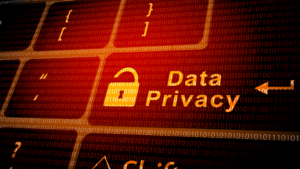In today’s digital age, data is a valuable asset, often compared to oil for its potential to drive innovation and economic growth. As individuals and organizations generate vast amounts of data daily, understanding who owns this data becomes crucial. Data ownership isn’t just about possession; it involves rights and responsibilities that dictate how data can be accessed, shared, and used.
Data ownership is typically determined by several factors, including the origin of the data, the nature of agreements in place, and applicable laws and regulations. For businesses, this means navigating a complex landscape of contracts and legal frameworks to ensure compliance and protect their interests. For individuals, it often involves understanding privacy policies and terms of service agreements that outline how their data is handled.
The implications of data ownership extend beyond legal aspects, influencing trust and transparency between data collectors and users. As technology evolves, so too does the conversation around who truly owns data and what that ownership entails.
Data Ownership is Typically determined By

Data ownership is critical in today’s digital ecosystem as it establishes control and accountability. Organizations need clear data ownership to implement effective data governance strategies. Ownership allows companies to make informed decisions, ensuring data is used ethically and legally.
Individuals benefit from data ownership by gaining control over their personal information. This control enhances privacy and reduces the risk of unauthorized use. Data ownership is typically determined by knowing who owns their data, individuals can demand accountability and transparency from entities collecting and using their information.
Legal Frameworks Influencing Data Ownership
Data ownership is typically determined by intricacies from complex legal frameworks worldwide. These frameworks impact how data is controlled, accessed, and used.
International Regulations
International regulations play a vital role in shaping data ownership. The General Data Protection Regulation (GDPR) in the European Union (EU) exemplifies a comprehensive global standard. It mandates data subjects’ rights, consent, and transparency for data processing. The GDPR’s influence extends beyond the EU, prompting other regions to adopt similar stringent measures. The Cross-Border Privacy Rules (CBPR) System facilitates international data transfers by ensuring privacy commitments from participating nations. Understanding these regulations helps organizations navigate cross-border data management and mitigate legal risks.
National Laws

National laws further define data ownership within specific jurisdictions. In the United States, the Health Insurance Portability and Accountability Act (HIPAA) sets data privacy standards for healthcare entities, emphasizing patient data protection. The California Consumer Privacy Act (CCPA) grants California residents greater control over personal data, reflecting a growing trend towards state-specific legislation. In Canada, the Personal Information Protection and Electronic Documents Act (PIPEDA) governs data collection, use, and disclosure in commercial activities. Adhering to national laws ensures compliance and fosters trust between businesses and users by clearly outlining rights and responsibilities regarding data.
Factors That Determine Data Ownership
A variety of elements influence data ownership, shaping how data is used and managed. Understanding these factors is vital in navigating the digital landscape effectively.
Contractual Agreements
Contractual agreements specify data ownership by outlining the rights of the involved parties. These agreements, often formed between businesses and service providers, define who can access, modify, and distribute the data. For example, SaaS contracts frequently include clauses detailing ownership rights, ensuring clarity for both parties involved. Without clear contractual terms, disputes may arise, complicating data usage and management.
Data Source And Generation

The origin of data and its creation method significantly impact ownership. Data generated internally, such as company analytics, typically belongs to the organization. In contrast, data collected from external sources, like customer information, might involve shared ownership depending on user agreements. The data collection process, whether through sensors, user input, or automated systems, also determines responsibilities and rights associated with that data. Understanding the nuances of data source and generation is crucial for ensuring compliant and fair data management practices.
Different industries perceive data ownership uniquely based on their operational frameworks and regulatory environments. Strategic understanding of these nuances helps stakeholders manage data more effectively.

